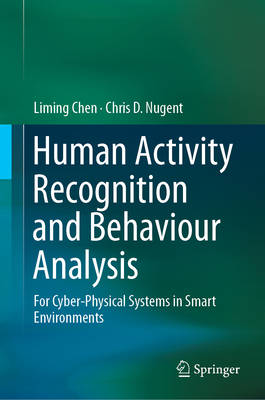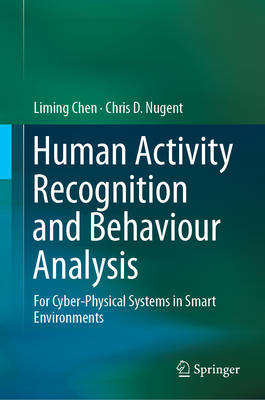
- Afhalen na 1 uur in een winkel met voorraad
- Gratis thuislevering in België vanaf € 30
- Ruim aanbod met 7 miljoen producten
- Afhalen na 1 uur in een winkel met voorraad
- Gratis thuislevering in België vanaf € 30
- Ruim aanbod met 7 miljoen producten
Human Activity Recognition and Behaviour Analysis
For Cyber-Physical Systems in Smart Environments
Liming Chen, Chris D NugentOmschrijving
The book first defines the problems, various concepts and notions related to activity recognition, and introduces the fundamental rationale and state-of-the-art methodologies and approaches. It then describes the use of artificial intelligence techniques and advanced knowledge technologies for the modelling and lifecycle analysis of human activities and behaviours based on real-time sensing observations from sensor networks and the Internet of Things. It also covers inference and decision-support methods and mechanisms, as well as personalization and adaptation techniques, which are required for emerging smart human-machine pervasive systems, such as self-management and assistive technologies in smart healthcare. Each chapter includes theoretical background, technological underpinnings and practical implementation, and step-by-step information on how to address and solve specific problems in topical areas.
This monograph can be used as a textbook for postgraduate and PhD students on courses such as computer systems, pervasive computing, data analytics and digital health. It is also a valuable research reference resource for postdoctoral candidates and academics in relevant research and application domains, such as data analytics, smart cities, smart energy, and smart healthcare, to name but a few. Moreover, it offers smart technology and application developers practical insights into the use of activity recognition and behaviour analysis in state-of-the-art cyber-physical systems. Lastly, it provides healthcare solution developers and providers with information about the opportunities and possible innovative solutions for personalized healthcare and stratified medicine.
Specificaties
Betrokkenen
- Auteur(s):
- Uitgeverij:
Inhoud
- Aantal bladzijden:
- 255
- Taal:
- Engels
Eigenschappen
- Productcode (EAN):
- 9783030194079
- Verschijningsdatum:
- 19/06/2019
- Uitvoering:
- Hardcover
- Formaat:
- Genaaid
- Afmetingen:
- 152 mm x 241 mm
- Gewicht:
- 535 g

Alleen bij Standaard Boekhandel
Beoordelingen
We publiceren alleen reviews die voldoen aan de voorwaarden voor reviews. Bekijk onze voorwaarden voor reviews.











